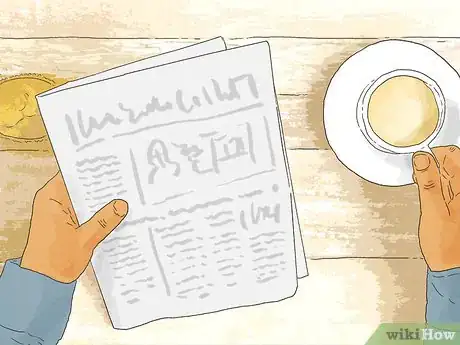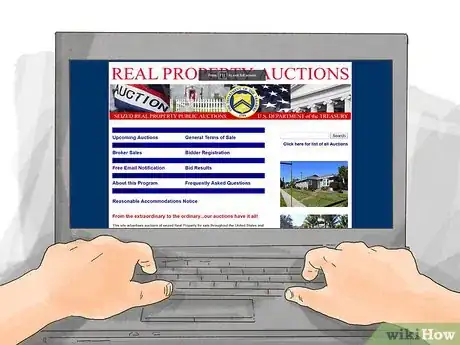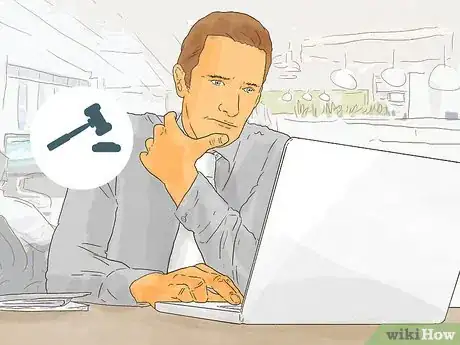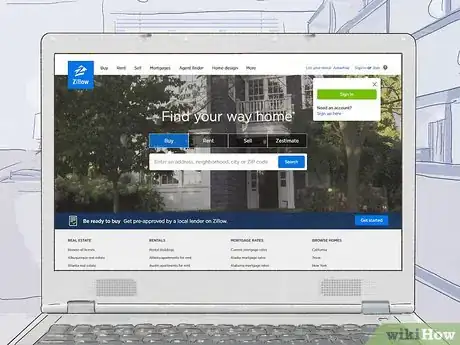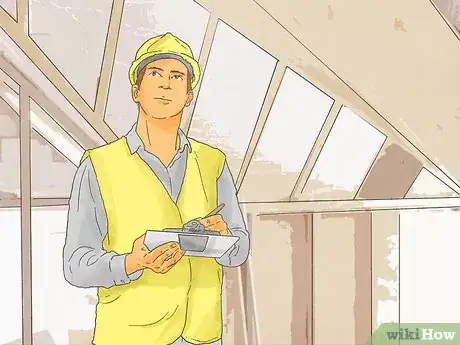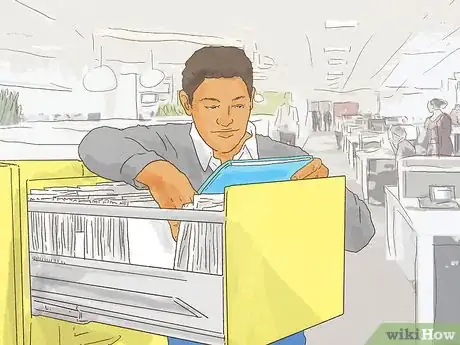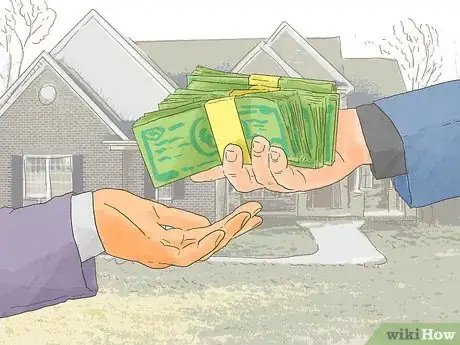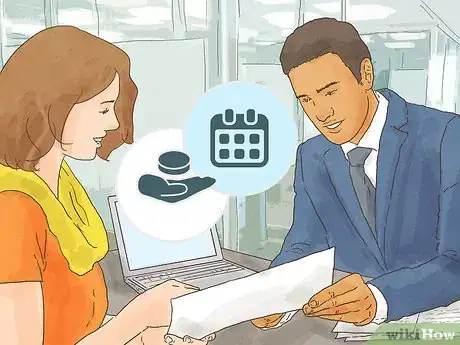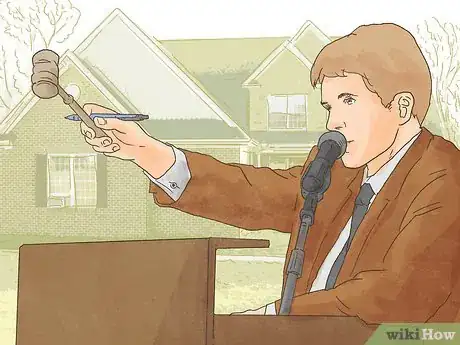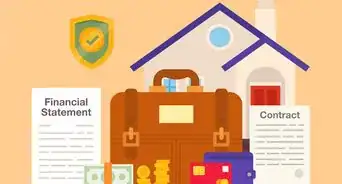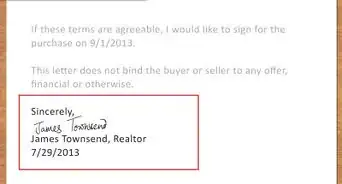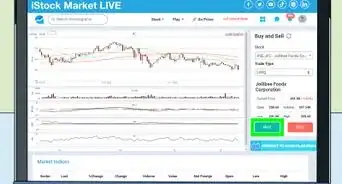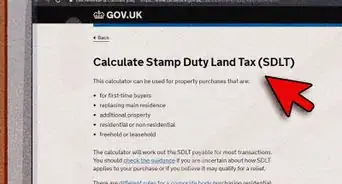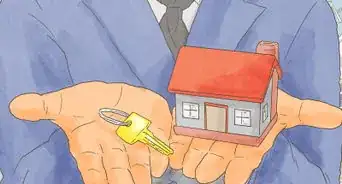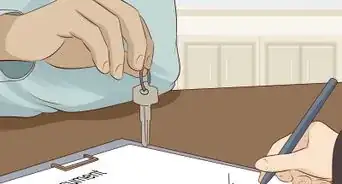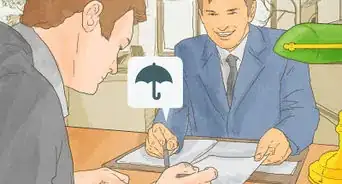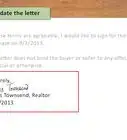This article was co-authored by Carla Toebe. Carla Toebe is a licensed Real Estate Broker in Richland, Washington. She has been an active real estate broker since 2005, and founded the real estate agency CT Realty LLC in 2013. She graduated from Washington State University with a BA in Business Administration and Management Information Systems.
There are 12 references cited in this article, which can be found at the bottom of the page.
This article has been viewed 41,404 times.
Buying a foreclosed home is a great way to invest in real estate. Typically, you can get the house for a cheap price, but you'll have to assume responsibility for all repairs. To find real estate auctions, look in the newspaper and online. Then prepare for attending your first auction by researching properties and learning the rules.
Steps
Searching for Auctions
-
1Find listings in your newspaper. Your paper should publish legal notices notifying the public of upcoming auctions. Check the back pages of your local newspaper.
- Also write down the names of the auction companies. You can then visit their websites to find out about upcoming auctions.[1]
-
2Check government websites. Many foreclosed properties are sold by the government. You can find upcoming auctions by visiting the agency's website. In the U.S., the following agencies often have foreclosure auctions:
- The U.S. Treasury will foreclose on real estate when the owners don't pay their taxes. You can find upcoming auctions at https://www.treasury.gov/auctions/treasury/rp/.
- Fannie Mae forecloses on properties. If they can't sell a foreclosed home, they put it up for auction through a third-party auction company. Contact Fannie Mae to find out about upcoming auctions.[2]
- Other U.S. agencies that hold auctions include the U.S. Department of Agriculture and the Federal Deposit Insurance Corporation (FDIC). Check their websites.
Advertisement -
3Visit auction websites. Some of the more popular websites include Auction.com, Hudson and Marshall, and Williams and Williams.[3] Visit their websites and search by date and location.
- You can also find auctions on Xome.com and hubzu.com. You will likely have to pay a buyer's premium when using these sites. Additionally, buyers on hubzu.com must pay an excise tax.
-
4Search online listing services. There are many websites that list real estate for auction. Zillow, for example, lists the date, time, and location of auctions.[4] Some websites charge a fee for accessing their information, so find out ahead of time if you need to pay.
-
5Ask a local real estate broker about upcoming auctions. Brokers often have inside information about what properties are coming up for auction. Call a REALTOR and ask.[5]
- Auctions may be listed on the MLS, which a REALTOR can help you find.
-
6Check eBay. Real estate is sometimes put up for sale on eBay, which is an online auction site. You can search listings for free, but you will need to create an account if you want to bid. Many of the listings are only classified ads, not actual auction listings. Review the listing carefully.
Researching a Property
-
1Swing by to look at it. You can tell a lot by just looking at a piece of property from the road. If the building looks completely run down, then the inside probably isn't any better. Also check if someone is living on the property. If so, the house probably has electricity and plumbing.[6]
- Some auction companies have pictures on their websites which show the inside and outside of the property.
-
2Talk to neighbors. Be friendly and identify that you are thinking of bidding on the property at auction. Ask the neighbors what they know about the previous owners. For example, you might find out that the prior owners trashed the place on their way out.
- Properties are sold “as is” at auction, which means you bear the entire burden of any repairs. You can't claim the bank hid structural defects from you.
- Neighbors might also know whether squatters have moved into the property. If so, you'll need to evict them after you buy the property at auction.[7]
-
3Search for an inspection. Generally, you can't have a home inspected before the auction. However, the bank might have had an inspection done, or the most recent owner might have had one. Search around whether you can find any inspection reports.
- A local REALTOR might be able to find one for you. If you have a working relationship with a REALTOR, you can call them and ask them to check.
-
4Run a title report on the property. The title report will tell whether the property has any liens on it. Generally, liens get wiped out after an auction sale.[8] However, some homes will be sold subject to liens.[9]
- You can visit the land records office and look for the deed. All liens should be recorded there.
- Alternately, you can hire a title company to run a report for you.
Preparing for an Auction
-
1Make a deposit to show you are serious. Many auctions will require that you deposit a few thousand dollars to show that you are a serious bidder. If you win at auction, the money will be applied to your purchase. However, if you don't win anything, the money will be refunded.
- Depending on the auction, you might need to deposit a cashier's check or use a credit card to send funds.[10]
-
2Estimate the winning bid. If you find a home on Zillow, you can check the foreclosure estimate. This is the amount Zillow estimates the home will sell for. Use this estimate to decide whether to bid on a property and, if so, your maximum bid.
- Undoubtedly, your home will need repairs. Without being able to get inside, it will be difficult to estimate the amount. Nevertheless, you should plan for a worst-case scenario where you must replace plumbing and electrical.[11] Consult with a contractor to find out how much these repairs might cost.
-
3Ask the auctioneer when payment is due. In some states, you only need to make a down payment at the auction, with the rest due in 30 days.[12] However, other auctions might require that you pay the entire amount upfront the day of the auction. Call the auctioneer and ask.
- This information might also be listed in the advertisement, so check there as well.
-
4Obtain preapproval for a loan. Visit a lender in your area and ask to be preapproved. You will need to provide information on your assets, debts, and income. A lender will also pull your credit history.[13]
- If you're approved, you'll receive a letter stating the amount you can borrow.
-
5Confirm the auction is being held. Many auctions are cancelled with very little notice, so you should call the day before to confirm the time and location. You definitely don't want to be late, since some auctions are completed within minutes.[14]
- You can find the address for the auction company online.
References
- ↑ http://abcnews.go.com/Business/ConsumerNews/find-foreclosed-homes/story?id=13052956
- ↑ https://www.homepath.com/investors.html
- ↑ http://abcnews.go.com/Business/ConsumerNews/find-foreclosed-homes/story?id=13052956
- ↑ https://www.zillow.com/foreclosures/buyer/buying-at-a-foreclosure-auction/
- ↑ https://www.realtor.com/advice/buy/how-to-buy-house-real-estate-auctions/http://www.realtor.com/advice/buy/five-tips-buying-a-foreclosed-home-auction
- ↑ https://www.zillow.com/foreclosures/buyer/buying-at-a-foreclosure-auction/
- ↑ https://www.realtor.com/advice/buy/five-tips-buying-a-foreclosed-home-auction/
- ↑ https://www.auction.com/blog/how-to-buy-foreclosures-at-auction/
- ↑ https://www.zillow.com/foreclosures/buyer/buying-at-a-foreclosure-auction/
- ↑ https://www.auction.com/blog/how-to-buy-foreclosures-at-auction/
- ↑ https://www.zillow.com/foreclosures/buyer/buying-at-a-foreclosure-auction/
- ↑ https://www.auction.com/blog/how-to-buy-foreclosures-at-auction/
- ↑ https://www.realtor.com/advice/buy/five-tips-buying-a-foreclosed-home-auction/
- ↑ https://www.washingtonpost.com/realestate/thinking-of-buying-at-a-foreclosure-auction-better-do-your-research/2011/10/10/gIQAHZFAkL_story.html?utm_term=.47b281a2df18
